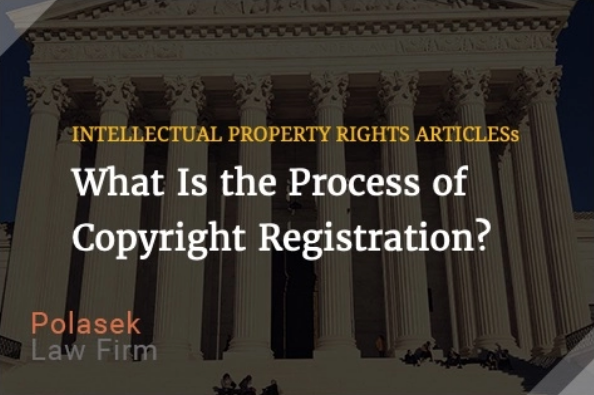What is Copyright Registration?

From the moment you create an original work, you have an exclusive intellectual property right to make copies of your work. This is known as copyright.
This right exists regardless of whether you publish your work or register it with the federal government.
However, there are many benefits to registering your copyright with the U.S. Copyright Office, such as:
- Providing evidence that your copyright is valid;
- Allowing you to sue for copyright infringement in federal court;
- Putting others on notice of your copyright; and
- Allowing you to collect statutory damages for copyright infringement.
If you have created a new work, consider consulting an experienced copyright attorney to help you understand what is the process of copyright registration.
They can help you prepare your copyright registration, advise you about copyright infringement, and help you with contracts to publish or license your work.
Steps in the Copyright Registration Process
If you decide to register your copyright, you will need to pay a fee depending on is you are re-registering one piece of work. The typical copyright registration cost for standard registration is $65 and if you are submitting for a piece of work that has been registered before and you are the only author, the fee is $45.
You will also need to submit an application to the U.S. Copyright Office. This process involves several steps:
Prepare Your Registration Materials
Your copyright registration consists of three things:
- Your registration form,
- Your registration fee, and
- Copies of the work you want to register.
Generally, you should plan to include one copy of your work if it is unpublished and two copies if it is published.
Determine How You Want to Register Your Copyright
You can register a copyright either by mail or online.
The easiest and quickest way to register your copyright is by submitting your registration online with the U.S. Copyright Office.
Online copyright registration also has cheaper filing fees than paper registration.
In many cases, you will need to mail the copies of your work separately, even if you complete registration online. However, the following works may be submitted electronically:
- Works that are published only electronically,
- Unpublished works, and
- Architectural works.
If you prefer to register your copyright by mail, you need to choose the appropriate form for the type of work you are copyrighting.
The Copyright Office has different forms for visual arts, performing arts, literary works, sound recordings, and single serials. You can download the forms online or request to have them sent to you by mail.
You can mail your form to:
Library of Congress
U.S. Copyright Office-SR
101 Independence Avenue SE
Washington, DC 20559-6000
If you complete your registration by mail, you need to include your fee and copies of your work in the same package as your registration form.
Follow Up on Your Registration
If you register online, you will receive an electronic confirmation.
If you register by mail, you should consider using certified mail to confirm receipt. The U.S. Copyright Office will not send you a confirmation.
It generally takes about three to nine months for the Copyright Office to process your registration.
The length of time depends on whether you submit your registration and copies electronically or by mail and whether further communication is needed before the copyright can be granted.
If you file online, you can check the status of your claim online. If you file a paper application, you can contact the Copyright Office to check your claim?s status after about six weeks.
If the Copyright Office has questions or needs more information from you, it will reach out by mail, email, or phone.
If the Copyright Office cannot grant your copyright, it will send you a letter explaining why it rejected your registration.
If all goes well and your copyright is registered, the Copyright Office will send you a certificate of registration by mail.
How Long Does Copyright Last?
The length of time a copyright lasts depends on when it was registered and whether the author is an individual or an institution. For any copyrights registered after January 1, 1978, the following rules apply:
Individual Authors
If the author of a work is an individual, their copyright will last for the length of their life plus 70 years.
If the work has more than one author, then the copyright will last for the length of the last surviving author?s life plus 70 years.
Institutional Authors
Different rules apply if the author is an institution, such as a corporation or nonprofit organization, or someone they hired to complete work on their behalf.
In this circumstance, the copyright lasts either 95 years from the date of publication or 120 years from the date of creation, whichever comes first. This rule also applies to anonymous authors.
Contact an Intellectual Property Lawyer Today
If you have questions about copyright registration or if you have questions regarding trademarks or patents, our experienced intellectual property attorneys are here to help. Contact us today and see what Polasek Law Firm can do for you.


